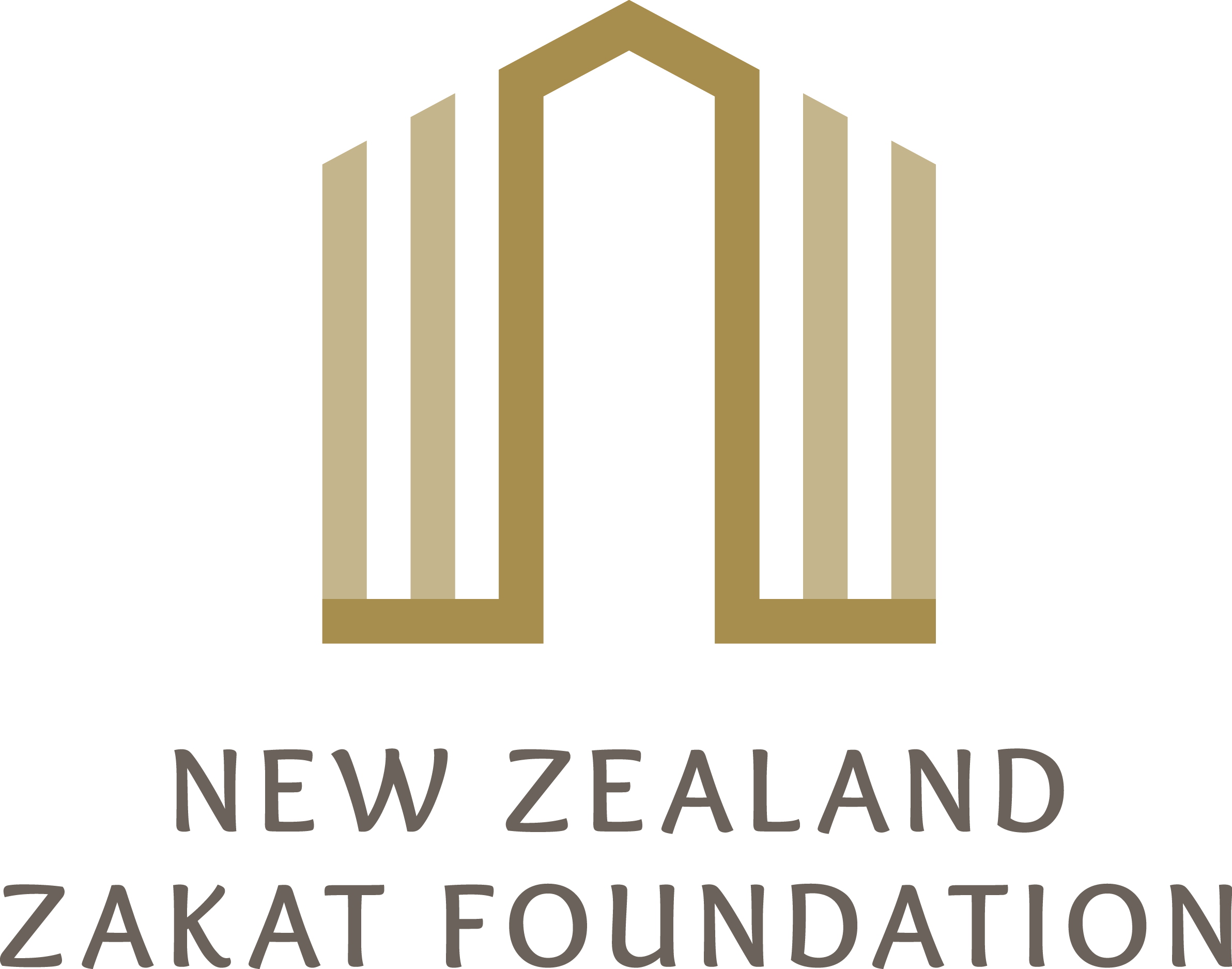What is Zakat?
What is Zakat?
The Prophet Muhammad (Peace be upon him) said, “Islam has been built on five [pillars]: testifying that there is deity worthy of worship except Allah and that Muhammad is the Messenger of Allah, establishing the prayer, paying the obligatory charity (Zakat), performing Hajj, and fasting Ramadan”
– (Bukhari and Muslim).
Zakat is a charity that Muslims are obligated to pay from specific types of wealth and is distributed to certain kinds of recipients.

The Purpose
The Arabic word Zakat means growth, increase, blessings or purification. The purpose of paying the Zakat is ultimately a show of faith and manifestation of one’s devotion to God Most High.
However, it also serves the purpose of purifying wealth, increasing blessings, and protecting and uplifting needy and vulnerable Muslims.
Who Must Give Zakat?
A Muslim who possesses monetary wealth that is above the Nisab for a lunar year is obligated to pay the Zakat.
The Nisab is the amount of wealth that an individual must own before Zakat becomes obligatory on them.
The Nisab value was established by the Prophet Muhammad (peace be upon him) and is approximately equivalent to 85 grams of gold or 595 grams of silver. However, because gold and silver is no longer our main medium of exchange, we calculate and pay our Zakat based on its equivalent value in paper money.
85 grams of gold is NZD $7,038.85
595 grams of silver is NZD $678.30
(These values are approximations as of 25 January 2021)
Scholars differ as to which Nisab value should be used. Those who prefer gold do so because it is closer than silver to being the international alternative currency to paper currency. Those who prefer silver hold that it should be used as it is more beneficial for Zakat recipients.
“Direct your Zakat to the most vulnerable in our local communities”
Why Donate Locally?
We often get asked why we should give our zakat locally if New Zealand has a social welfare system and people in developing countries have far more financial need than us. There are a few reasons why New Zealanders are worthy of receiving zakat.
Islamic perspective
There are 8 categories of people who are eligible to receive Zakat based on the verse of the Quran:
“Indeed, Zakat is only for the poor, the needy, those who collect it, those whose hearts are to be reconciled, to free slaves, those in debt, for the cause of Allah, and for the wayfarers; [this is] an obligation from Allah, and Allah is All-Knowing, All-Wise”.
While millions of zakat dollars go overseas every year, many of these categories of people exist in New Zealand. They miss out on the opportunity to pay off their debt and improve their living conditions.
All four Islamic schools of thought either mandate or recommend zakat money be distributed locally. This is based on a hadith where Muaath bin Jamal RA, the emissary of Umar Al Khattab (RA) to Yemen, sent him the zakat he had collected in the Yemen, Umar RA sent back a swift reprimand instructing him to redistribute the collections locally.
Here are the positions of the four schools of thought on transferring zakat (sending it somewhere else):
- Shafi’i: not allowed
- Hanafi: disliked (makruh)
- Maliki: not allowed
- Hanbali: not allowed
The New Zealand Context
New Zealand’s social welfare system covers these categories for New Zealand citizens:
- Single parents
- Jobseekers and people who are unemployed
- People who cannot work due to disability or long-term health conditions
The benefit does not cover people who are not New Zealand citizens, leaving travellers and ‘international students in a vulnerable position if their circumstances suddenly change
A single parent of two who works part time on minimum wage could receive around $500 a week before tax in benefits and accommodation support. Government schemes provide day-to-day assistance, but many still find themselves struggling to make ends meet because of the high cost of living. They become reliant on food parcels, or get into debt to meet basic needs or unexpected costs. Out of desperation, some of this debt can be with loan sharks or other high-interest lenders, and increase over time. These are difficult to pay off when people don’t have extra income.
The Salvation Army State of the Nation Report 2022 found:
- “Almost one in five children (18%) live in benefit-dependent households and they are more likely to have incomes below the official poverty lines. Around seven out of ten children who were part of households with a welfare benefit as their main source of income were below the 50% [after household costs] income poverty line in 2019.”
- The number of people on Jobseeker income support in December 2021 is 23,000 higher than pre-Covid-19 in December 2019. The Treasury and Ministry of Social Development have forecast total Jobseeker numbers to remain above pre-Covid-19 through 2022 and 2023.
The Benefits of Giving Local
Zakat isn’t designed to just ‘help’ people who live in poverty. It aims to lift people out of it. This pillar of Islam doesn’t just purify our wealth. It enables us to create a stronger society by working together so everyone can thrive. The more people lifted out of poverty, the more people paying zakat, and the more we can work outwards, to help our global ummah. Without building a strong internal foundation where everyone is thriving, communities continue to collapse.
Zakat also builds strong communities by making sure scholarship is maintained. There are currently no homegrown Islamic scholars in New Zealand. Anyone interested in this path needs to travel overseas and not everyone has the means for this. Providing a space for homegrown scholarship will create a pathway for more New Zealanders to pursue this goal and build a strong Muslim base for Islamic scholarship on our shores
Our Focus
New Zealand Zakat Foundation is committed to facilitating the collection and distribution of zakat, helping Muslims in New Zealand out of financial hardship and supporting our community to thrive
0% of your zakat donations go into administration costs

